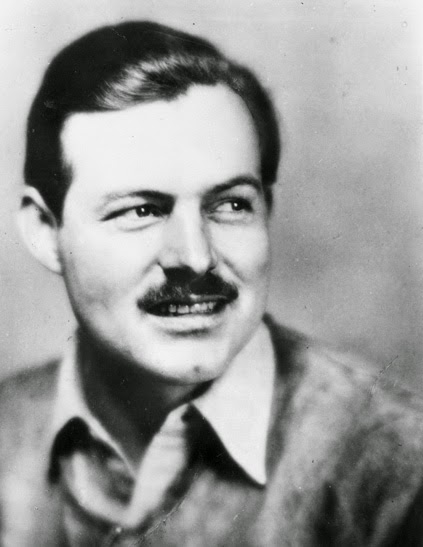Great news for movie lovers generally and Orson Welles fans in particular: The director’s storied but unfinished final film, The Other Side of the Wind, may finally be completed and shown next year. As the New York Times reports, the production company Royal Road Entertainment has managed to strike a deal to buy the rights to the movie, with the aim of screening it in California by May 6, 2015, which would have been Welles’ 100th birthday.
According to the Times, the script has its origins in “a tense encounter in 1937 between Ernest Hemingway and a young Welles.” Welles said that a “whiskey-drinking Hemingway” mocked him as one of the “effeminate boys of the theater,” and, when he “mocked him back, Hemingway threw a chair and they scuffled—settling it with a toast that led to an on-again, off-again friendship.” Hemingway apparently “serves as the primary model for Huston’s character.” Source: www.slate.com
A historic hospital where Zelda Fitzgerald, wife of author F. Scott Fitzgerald, died in a fire is for sale. Several historic buildings on the site of the famous Highland Hospital in the northern Montford neighborhood are currently on the market, said Debbie Lane, a realtor with NAI Beverly-Hanks. They include one of the first buildings constructed in Montford and structures used as Highland Hospital, established by Dr. Robert S. Carroll, a distinguished psychiatrist who treated addictions as well as nervous and mental disorders. Carroll moved the hospital from downtown to the Montford location in 1909. In 1948 a fire broke out in the main building, killing nine women including Zelda Fitzgerald, according to the National Park Service, which lists the hospital site as on the National Register of Historic Places. Source: www.citizen-times.com
Zelda had hawk's eyes and a thin mouth and deep-south manners and accent. Watching her face you could see her mind leave the table and go to the night's party and return with her eyes blank as a cat's and then pleased, and the pleasure would show along the thin line of her lips and then be gone. Zelda was jealous of Scott's work and as we got to know them, this fell into a regular pattern. Scott would resolve not to go on all-night drinking parties and to get some exercise each day and work regularly. He would start to work and as soon as he was working well Zelda would begin complaining about how bored she was and get him off on another drunken party. Scott was very much in love with Zelda and he was very jealous of her. He told me many times on our walks of how she had fallen in love with the French navy pilot. But she had never made him really jealous with another man since. This spring she was making him jealous with other women and on the Montmartre parties he was afraid to pass out. This continued for years but, for years too, I had no more loyal friend than Scott when he was sober.
Scott was a man then who looked like a boy with a face between handsome and pretty. He had very fair wavy hair, a high forehead, excited and friendly eyes and a delicate long-lipped Irish mouth. His chin was well built and he had good ears and a handsome, almost beautiful, unmarked nose. This should not have added up to a pretty face, but that came from the colouring, the very fair hair and the mouth. His talent was as natural as the pattern that was made by the dust on a butterfly's wings. At one time he understood it no more than the butterfly did and he did not know when it was brushed or marred. Later he became conscious of his damaged wings and of their construction and he learned to think and could not fly any more because the love of flight was gone and he could only remember when it had been effortless. -"A Moveable Feast" (1964) by Ernest Hemingway








No comments :
Post a Comment